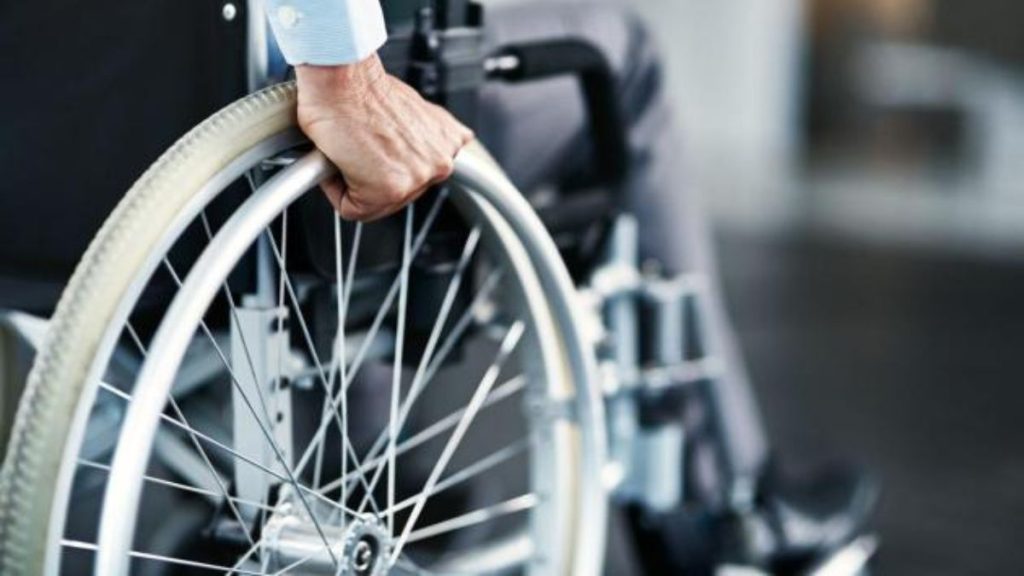The Department for Work and Pensions (DWP) has officially announced a £560 monthly boost to disability benefits starting in 2025, offering much-needed financial relief to thousands of vulnerable individuals and families across the UK.
This significant increase is aimed at helping disabled people and their carers manage rising living costs, including medical bills, mobility support, home adaptations, and essential daily expenses.
With the cost of living crisis still affecting millions, this update is one of the most notable social welfare adjustments in recent years.
What the £560 Monthly Boost Means for You
The increase applies to several key DWP-managed disability benefits, including:
- Personal Independence Payment (PIP)
- Disability Living Allowance (DLA)
- Employment and Support Allowance (ESA) for long-term health conditions
This £560 monthly uplift is intended to enhance financial security for individuals whose disabilities or chronic health conditions make everyday life more expensive.
Recipients can expect this additional support to cover vital costs such as medical treatments, mobility equipment, home care, or special dietary needs.
For many, it could mean the difference between financial strain and a sustainable, independent lifestyle.
How the Increase Will Be Applied
The exact amount you receive depends on the type of benefit, your income, and other government support you may already claim.
- Some individuals will receive the full £560 increase each month.
- Others may see a partial increase if their benefits overlap with other income-based support, such as Universal Credit or Housing Benefit.
The DWP has clarified that the adjustments will be automatic for existing claimants, though verifying your details with the department is always recommended.
Eligibility Criteria for the DWP Disability Boost
To qualify for the £560 monthly increase, claimants must meet the standard eligibility rules for disability-related benefits. These typically include:
- Having a long-term disability or health condition that substantially affects daily living or mobility.
- Being a UK resident and meeting DWP’s habitual residence conditions.
- Passing an official medical or functional assessment (for PIP or DLA).
Those already receiving PIP, DLA, or ESA will not need to reapply. However, the DWP urges claimants to:
- Ensure bank details and addresses are up to date.
- Report any changes in circumstances, such as medical condition or household income.
Failure to do so could result in delays or incorrect payments.
How to Apply or Update Your Claim
If you are new to claiming disability benefits, you can apply online via the official DWP website. The process involves:
- Filling out the application form with detailed information about your condition.
- Submitting medical evidence, including doctor’s letters, hospital reports, or treatment documentation.
- Attending an assessment, if required.
For those already on benefits:
- Review your current claim status.
- Update any new medical information.
- Confirm bank account and address details to ensure payments arrive on time.
Applications can also be made by post, and paper forms remain available for those unable to apply online.
Financial Impact on UK Households
The £560 monthly uplift represents a major step toward improving financial resilience for disabled individuals.
According to independent analysts, this increase could inject over £2 billion in additional support across the UK economy annually.
For many households, this money will go directly toward daily essentials, transport, medication, or home care, easing the financial burden on families and carers.
In addition, experts predict that the boost will help reduce reliance on food banks and local council crisis grants among disabled communities.
Support and Resources for Claimants
Several organisations are working to help people understand and access the new payments, including:
- Citizens Advice – offers free support with claims and appeals.
- Scope – provides disability-specific advice and assistance.
- Age UK – supports older claimants and those receiving Attendance Allowance.
- Local councils – may provide supplementary grants or energy support schemes.
If you’re uncertain about eligibility, these groups can guide you through DWP forms and help you check whether you’re owed backdated payments.
How to Avoid Delays in Receiving Payments
The DWP has warned that errors in claim information are among the most common causes of delayed payments. To avoid issues:
- File claims early and accurately.
- Double-check bank details and National Insurance numbers.
- Keep a record of all communications and reference numbers from the DWP.
- If applying by post, use tracked mail to confirm delivery.
The Bigger Picture: Why This Boost Matters
With inflation and energy prices remaining stubbornly high, disabled individuals continue to face some of the steepest financial pressures in the UK.
Government data shows that disabled households spend on average over £600 more per month on essential living costs than non-disabled households — even before the recent inflation surge.
The £560 monthly boost helps close that gap, offering dignity, independence, and better quality of life for those most affected by rising prices.
Charities such as Disability Rights UK and Scope have welcomed the announcement, calling it a “lifeline for those who have been left behind by previous cost-of-living policies.”
FAQs
1. Who will receive the £560 monthly disability boost?
Eligible recipients of PIP, DLA, and ESA will automatically receive the increase, provided their details are current and verified with the DWP.
2. When will the increased payments start?
The rollout begins in early 2025, with the full benefit expected to reach all qualified claimants by mid-year.
3. Do I need to reapply for the £560 boost?
No, existing claimants do not need to reapply. However, you should review and update your information through your DWP account or by phone.
4. How will this affect other benefits like Universal Credit?
Some overlap may occur. The DWP will automatically adjust total payments to ensure compliance with income thresholds and avoid overpayments.
5. Where can I get help with my claim?
You can contact Citizens Advice, Scope, or Age UK for free support, or call the DWP helpline for direct guidance on your case.
















